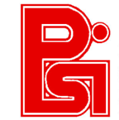

Santiago Martin, a 10th-grade student at the Rochambeau French International School, recently completed a two-week internship with RMI. During that time, he researched companies and interviewed RMI Board members representing various employers in the state. Since Santiago does not drive, all but one interview was by phone. Below is his interview with Scott Wiley, President of Product Support Inc. Santiago was referred to RMI by a representative of Local Motors who attended the May 3rd Techtonic Shift event.
Today, I spoke over the phone with Scott Wiley, the president of a company named Product Support Inc. or PSI for short. PSI is a full service manufacturing company founded in 1972, when it started as just a job shop. Over the course of the ‘80s, it started evolving, creating new products of its own. Today, it focuses on high volume production for mainly Aerospace, Defense, and Military industries, as well as making some jobs for commercial industries. I was impressed to discover that PSI tests mechanical parts and equipment used in automated aerial refueling for jets, which consists of attaching a tube between two jets so that one of them can refuel the other. This may sound like a basic process at first thought; however, the remarkable and striking factor to note is that this is all done while the jets are flying at very high altitude and at intense speeds, meaning this requires very precise and difficult operations.
We first spoke about the key technologies used by PSI, which are CNC machining and turning, CNC punching and forming, and EDM. I had never heard of the terms CNC and EDM before learning about it from Scott. He explained that CNC stands for Computerized Numerically Controlled, meaning their machinery is autonomous once installed, while of course still requiring occasional supervision. He then explained the term EDM, which stands for Electrical Discharge Machining. EDM is used when one desires to obtain a shape in a sheet of metal for example. These technologies are “faster and able to repeat” as Scott said. He also added that these technologies become more efficient by “reducing cycle times”. In order to stay up to date on the latest technologies, Scott attends tech shows and reads journals. He also finds out about them through the big networks of people that he’s a part of, such as RMI. We then discussed any concerns or issues that manufacturers like him face. Using 3D printing as an example, he made it very clear to me that cost is always an issue when trying to adapt to new technologies. In addition, with the evolution of technology, it becomes difficult to find people that know how to use the new machines that the company invests in. I learned from Scott that a cause of this problem is the fact that schools aren’t teaching students about new technologies as much as they should, and that they instead are still teaching students about machines used in the ‘70s.
Once I ran out of questions, we briefly concluded the interview with Scott giving me some final bits of information I might need for my article, as well as explaining a bit more of the company’s history. Scott provided a big insight on the life and work of a manufacturer. This is all very important and interesting to me as I wish to pursue new technology in manufacturing and design in my future career. In conclusion, this interview went very well and I discovered a lot from it thanks to Scott Wiley.
-Santiago Martin
